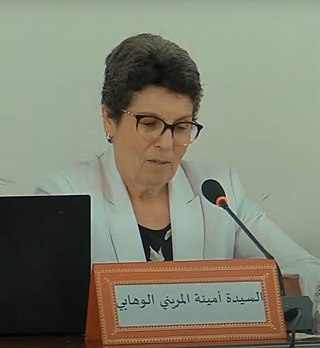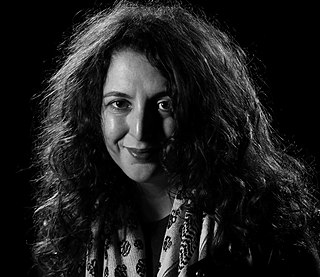
Scouting exists in Western Sahara both as part of the Fédération Nationale du Scoutisme Marocain as well as independent groups.

The Fédération Nationale du Scoutisme Marocain is the national federation of several Scouting organizations of Morocco. It was founded in 1933, and became a member of the World Organization of the Scout Movement in 1961. The coeducational Fédération Nationale du Scoutisme Marocain has 12,304 members as of 2004.
Mohammed Berrada, also transliterated Muhammad Baradah is a Moroccan novelist, literary critic and translator writing in Arabic. He is considered one of Morocco's most important modern authors.
Moroccan rap music is a Moroccan musical style related to rap and hip hop culture.

The history of women in Morocco includes their lives from before, during, and after the arrival of Islam in the northwestern African country of Morocco. It is a misconception that harems are formed here or that there is a universal rule to women's treatment and rights in this country. Some households subscribe to more ancient, Amazigh customs. Others adhere to an Arabized and Islamic. Independence from France in 1956.

Hamidou Laanigri is a Moroccan general and former head of the intelligence service of the Moroccan Ministry of the Interior. Laanigri was often accused of acts of torture in relation to the detention of Islamist activists after the 2003 Casablanca bombing and in connection with the secret Temara interrogation centre.
The 1965 Moroccan riots were street riots in the cities of Morocco, originating in Casablanca in March 1965. They began with a student protest, which expanded to include marginalized members of the population. The number of casualties incurred is contested. Moroccan authorities reported a dozen deaths, whereas the foreign press and the Union nationale des forces populaires (UNFP) counted more than 1000 deaths.

Amina Lemrini El Ouahabi is a Moroccan human rights activist, and the president of Morocco's Haute Autorité de la communication audiovisuelle.
Latifa El Bouhsini is a university professor at the Faculty of Education Sciences in Rabat, and has been a member of the National Office of the School of Citizenship for Political Studies, ECEP, in Rabat since 2012. Bouhsini is also a member of the national office of the Moroccan Organization of Human Rights She is a writer and a leftist feminist activist who holds a PhD in history and civilizations and writes prolifically about the history of the feminist movement in Morocco. Bouhsini is also a trainer specialized in gender and women's rights, and she is a speaker at the National Human Rights Council.
An adel or adoul is a type of public official in Morocco. Adels act in pairs to record marriages. They may also draft contracts, prenuptial agreements, divorce settlements and adjudicate testaments. Their office is comparable to that of a civil law notary. Women were first allowed to become adels in 2018.
Fatna El Bouih is a Moroccan human rights activist and writer. Imprisoned for five years during the Years of Lead, she continued her work, particularly as an advocate for women's rights, on her release. Her memoir of her experience during the Years of Lead was published in English translation as Talk of Darkness in 2008.
Latifa Jbabdi is a Moroccan feminist activist and writer. She is best known for her work to help improve women's rights through reforming the Mudawana, Morocco's legal code governing family life. She also served as a member of the House of Representatives from 2007 to 2011.

Naima Lamcharki is a Moroccan actress.
Saâd Chraïbi is a Moroccan director and screenwriter.
Imane Mesbahi is a Moroccan actress and filmmaker.
The International Women's Film Festival of Salé or FIFFS, is a film festival held in Salé, Morocco.
Bachir Skiredj was a Moroccan actor, filmmaker, comedian, and screenwriter. A popular entertainer for decades, he was best known for his role in Mohamed Abderrahman Tazi's À la recherche du mari de ma femme, a box office success.

Sonia Terrab is a Moroccan writer, filmmaker, and activist. Her work revolves around the status of women in Moroccan society, social hypocrisy regarding the body and sexuality, and Moroccan youth.
The Union Nationale des Femmes Marocaines (UNFM) is a women's organization in Morocco, founded in 1969.






